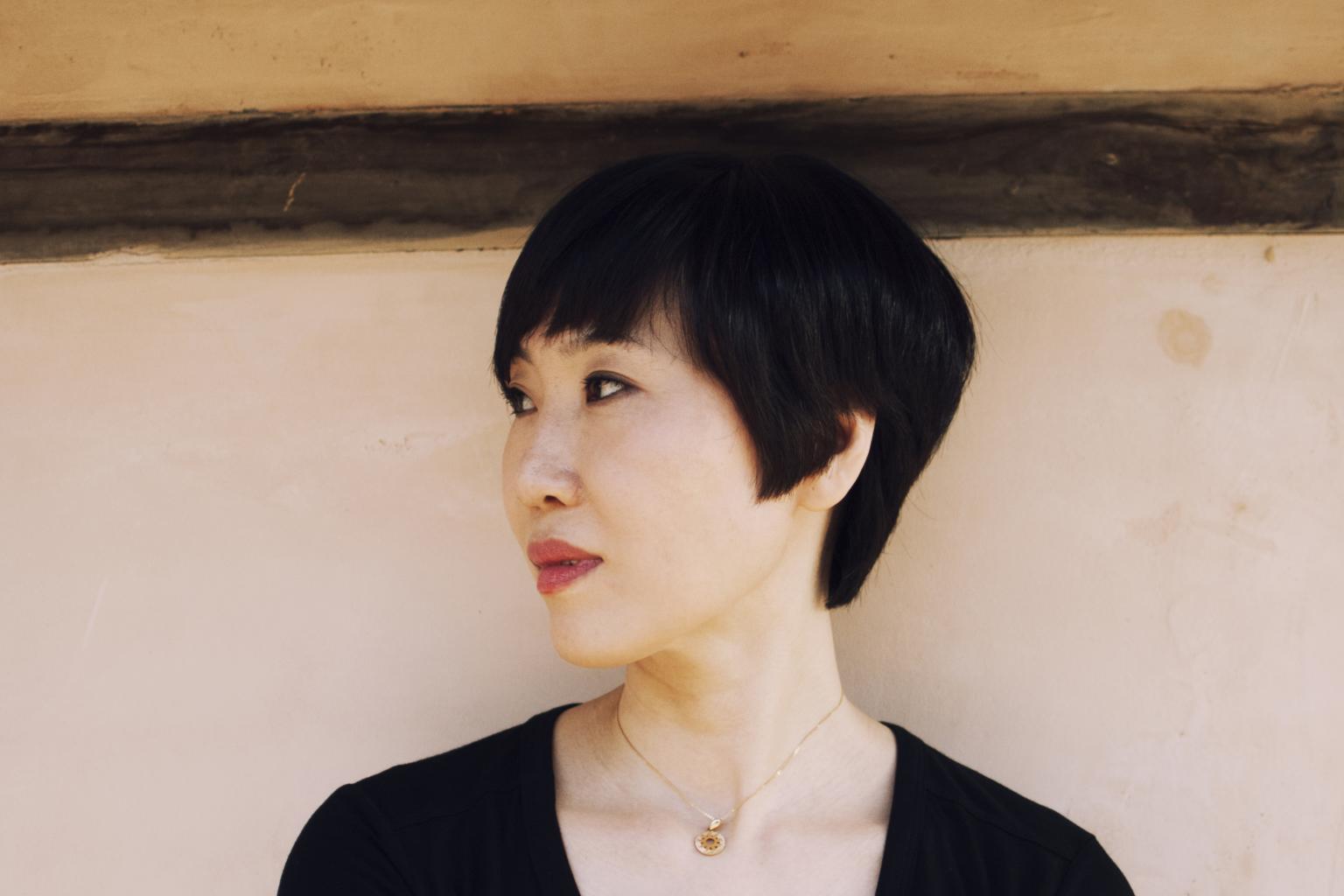Books: South Korean writer Jeong You-jeong explores the darkness of humanity in her thrillers
Sign up now: Get ST's newsletters delivered to your inbox

Jeong You-jeong's The Good Son is among a new wave of Korean crime novels being translated into English by major publishers.
PHOTO: COURTESY OF LITTLE, BROWN UK
Follow topic:
When she was 15 years old, Jeong You-jeong hid in a boarding house during the Gwangju civil uprising.
The boarding house owners and the college students who lived there had left to join the citizen army in the south-western South Korean city to protest against the military dictatorship. They nailed a thick blanket over her window to prevent bullets from flying in, before leaving to face, unarmed, tanks and armoured cars.
The uprising would turn bloody as soldiers bludgeoned, stabbed and fired on protesters, many of them students. More than 170 people were killed in the 10-day uprising, according to the official estimate, although witnesses have suggested the death toll was as high as 2,000.
Unable to sleep and afraid for her friends, Jeong stayed up on that night in May 1980 reading a Korean translation of Ken Kesey's One Flew Over The Cuckoo's Nest (1962), the classic novel about the dehumanising impact of a mental institution on its residents. She finished the book just as dawn broke.
The 52-year-old, one of South Korea's best-selling thriller writers, says in an e-mail interview through a translator: "Something hot and heavy rumbled at the bottom of my chest and I couldn't breathe. I began to wail. Never before or since have I sobbed like that over a book."
She decided then that she wanted to write stories so absorbing, they would make readers forget where they were. "I want them to spend all night, their souls burning, and greet dawn, spent. I want the world to burn with passion through me."
Jeong has delved into the darkness of the human mind in her novels, from vengeance-twisted fathers to serial killers. "The darkness of humanity is the force propelling my work," she says.
For instance, her novel 28 (2013), in which a mysterious epidemic devastates a city, draws on the guilt she felt at watching video footage of thousands of pigs and cattle being buried alive during a foot-and-mouth disease outbreak.
Compared by critics with horror great Stephen King, she has sold more than a million books and had her works adapted for film.
She has now broken into the English market with a new translation of her 2016 novel, The Good Son, by Kim Chi-young.
There are few Korean writers who write purely thrillers, she points out in the interview. In recent years, more writers have been making their name first with literary works, then gone on to write thrillers.
That might change. British newspaper The Guardian has said that The Good Son is among a new wave of Korean crime novels, including Lee Jung-myung's The Gospel Of The Murderer and Kim Un-Su's The Plotters, being translated into English by major publishers.
Jeong eschews the genre staple of the "whodunit".
"I often reveal who did it in the beginning. I'm not interested in creating tension through reversals. I'm more interested in why it happened and how a character behaves as a result. Inside everyone, there is a sunny, wide-open field as well as a dark forest. That is where all the beasts that create problems in life are asleep... I go deep into that forest to look closely at those."
This, she admits, can be frightening, especially with The Good Son, in which 25-year-old Yu-jin wakes up to find himself covered in blood, with no memory of the previous night. Later, he finds his mother's corpse downstairs in their house.
What helps her emotionally when she writes, she says, is listening to music - Gothic, symphonic or heavy metal - from the time she wakes up.
She also relies on her husband, who works at a firefighter academy, as a sounding board for her work.
"I realised early on that I wouldn't be able to perfectly fulfil the roles of a writer along with a wife and mother," she says. Her husband played a large role in raising their son, now 23, and does a significant portion of the housework.
For all her childhood aspirations, Jeong says she was not meant to be a writer. "I wasn't able to study literature because my mother disapproved. She wanted me to have a stable profession, probably because her brother had dreamt of being a writer, but gave up and died young."
Instead, she became a nurse. In emergency rooms and the intensive care unit, she regularly encountered people on the verge of death.
"People age quickly in the hospital," says Jeong, who also worked in health insurance.
"I think it's because you experience all of life's joys and sorrows at warp speed. You learn that we each owe a death, like Stephen King says."
Saving up to be a full-time writer, she tried and failed to get noticed in literary competitions until 2007, when her young adult novel My Life's Spring Camp won the Segye Youth Literary Award. She went on to win the Segye Ilbo Literary Award in 2009 with the novel Shoot Me In The Heart, in which two young men try to escape a mental hospital.
Her 2011 novel Seven Years Of Darkness, about the connection between a young girl's murder and a flooding disaster, sold half a million copies. Both Shoot Me In The Heart and Seven Years Of Darkness were made into movies, while The Good Son has been optioned for film.
While heartened that her works are reaching new audiences around the world, she hopes not to be pigeonholed as a Korean writer.
"Korean writers' works are no different from literature from other countries, in that we are all dealing with the universality of humanity."

